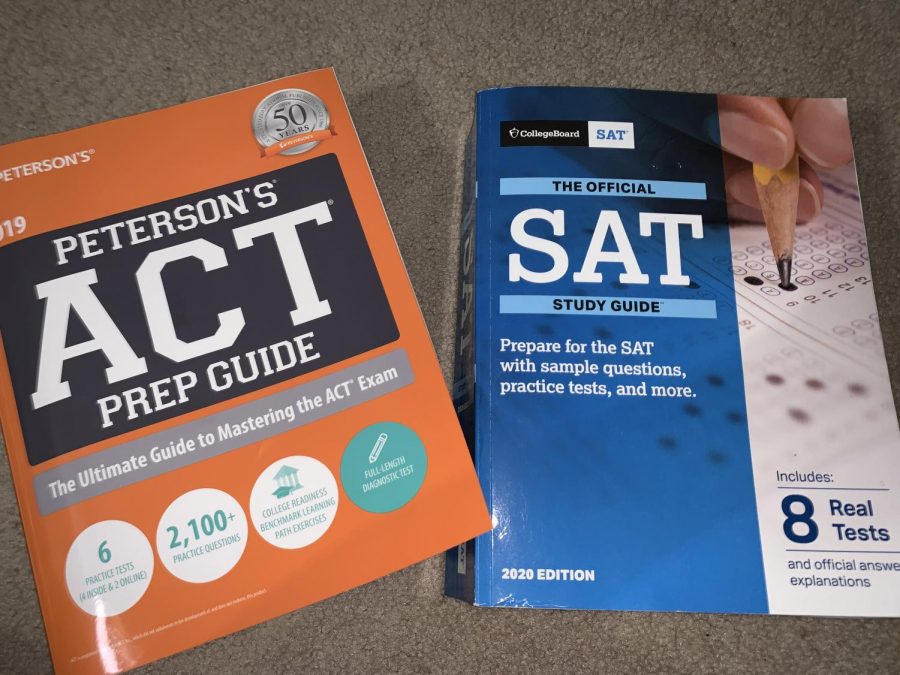Your donation will support the student journalists of The Tide, Richard Montgomery High School's student newspaper. Your contribution will allow us to purchase equipment and cover our annual website hosting costs.
Controversy arises over SAT use in college admissions
February 26, 2020
Collegeboard SAT book and ACT books are the main method of studying for these standardized tests.
In early December, an alliance of students, advocacy groups and a school district sued the University of California in an attempt to prevent the cluster of nine schools from considering the SAT and other standardized tests in the admissions process. The plaintiffs claimed that such standardized tests are biased against minority students, thus ultimately denying those students’ right to equal protection under the law.
Among the core reasons the plaintiffs listed was the enormous industry of test preparation, which, due to its price, is available exclusively to wealthy families. The plaintiffs’ lawyer said that test preparation “create[s] an uneven playing field.”
“I think especially because right now there are a lot of issues of income inequality in the United States, people have different resources that they can allocate differently. So SAT prep courses do give some students an advantage over others,” sophomore Carina Guo said. “If somebody scores better on their SAT, it’s perhaps because they had more opportunities in the rest of life, and then if they’re more successful, they can pay for SAT classes for their children, and it furthers this divide.”
The Princeton Review’s controversial SAT prep course exemplifies this. Its 1500+ course guarantees a score of 1500 or higher on the test; if not, the company promises that customers will be able to get their money back. For 16 two-hour online sessions, the course clocks in at $2300, or over $70/hour.
“Making test prep almost obligatory to get into a good school but also extremely expensive is going to increase inequality. It’s extremely unfair for low income students, and especially students of color,” sophomore Eleanor Clemans-Cope said. “It’s up to schools to really prioritize what they’re looking at in order to get a diverse body that really reflects the people who are working the hardest and not just who are paying the most money.”
In a statement, the College Board, the organization that administers the SAT, said, “The notion that the SAT is discriminatory is false.”
Some are hesitant to scrap the SAT altogether as a whole. “I’m not a huge fan of standardized testing,” sophomore Kevin Zhang, who has taken SAT prep courses since middle school, said. “But I do think that until there’s a better alternative, not much can be done about it.”
However, many others are in favor of the change. “Although it is a measure for those who take it, there are many people who can’t afford to take it in the first place or who don’t have the preparation to take it,” Guo said. “But I also think that there is more to people than just what they score on a test.”
